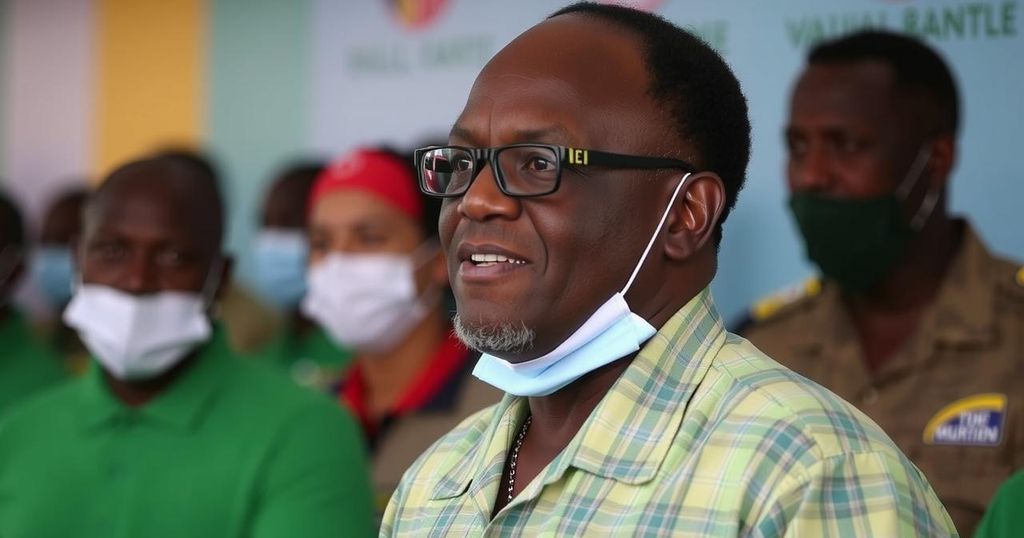Gabon’s New Constitution Receives Overwhelming Voter Support in Referendum

Provisional results from Gabon’s recent referendum indicate 91.8 percent voter support for a new constitution proposed by the military junta, establishing limits on presidential terms and eligibility. Voter turnout was reportedly 53.54%, and the referendum aims to address long-standing concerns related to governance following the coup that removed former President Ali Bongo Ondimba.
Gabon’s military leadership has reported that a new constitutional proposal has received overwhelming support from voters in a recent referendum. Provisional results released indicated that approximately 91.8 percent of the participating voters endorsed the new constitution, which proposes significant changes to the political framework. Amidst a campaign marked by official promotion from the military junta, voter turnout was announced by the interior ministry to be around 53.54 percent, a figure lower than previous estimates. The proposed changes include limiting presidential terms to two seven-year periods, eliminating the role of Prime Minister, and ensuring only Gabonese citizens can run for the presidency.
The context of this referendum arises from a coup that ousted former President Ali Bongo Ondimba, who ruled for 14 years. The coup leaders, who have established a transitional government, view the new constitution as a means to modernize governance and address the concerns of the Gabonese populace regarding previous administration issues, including rampant corruption and poor governance. The proposal comes at a time when the country is grappling with significant unemployment and social unrest, making the upcoming presidential elections in 2025 crucial.
In conclusion, the overwhelming approval of Gabon’s new constitution represents a pivotal moment for the country as it seeks to redefine its political landscape following a military coup. While the junta asserts that the changes will promote stability and transparency, criticisms arise concerning the implications for democratic governance and fears of tyranny. The electoral process, alongside the management of public trust, will be vital as Gabon approaches critical elections in the near future.
Original Source: www.tiogapublishing.com







